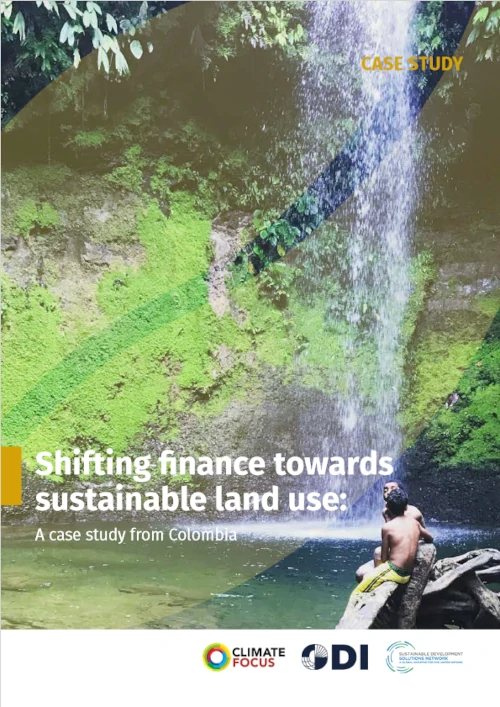About the report
Over half of Colombia’s land area is covered with forests and it is the second most biologically diverse country on the planet. Close to ten million Colombians (nearly a fifth of the population) live in rural areas and depend largely on agricultural activities. Structural challenges, low agricultural productivity and over 60 years of armed conflict have resulted in the stagnation of agricultural growth in recent decades.
While land is one of Colombia’s most valuable resources from both an environmental and socio-economic perspective, the land sector is responsible for over half of the country’s greenhouse gas emissions. It also holds significant mitigation potential. Colombia's Nationally Determined Contribution (NDC) proposed a set of measures to reduce emissions from the land use sector but capitalizing on the mitigation opportunities offered by Colombia’s land use sector will require reviewing the performance of existing land use policies based on their economic, social, and environmental costs and benefits, while explicitly considering climate mitigation and adaptation.
This case study aims to illustrate the measures the Government of Colombia can take to shift existing public support for agriculture towards sustainable and low-carbon land use.

